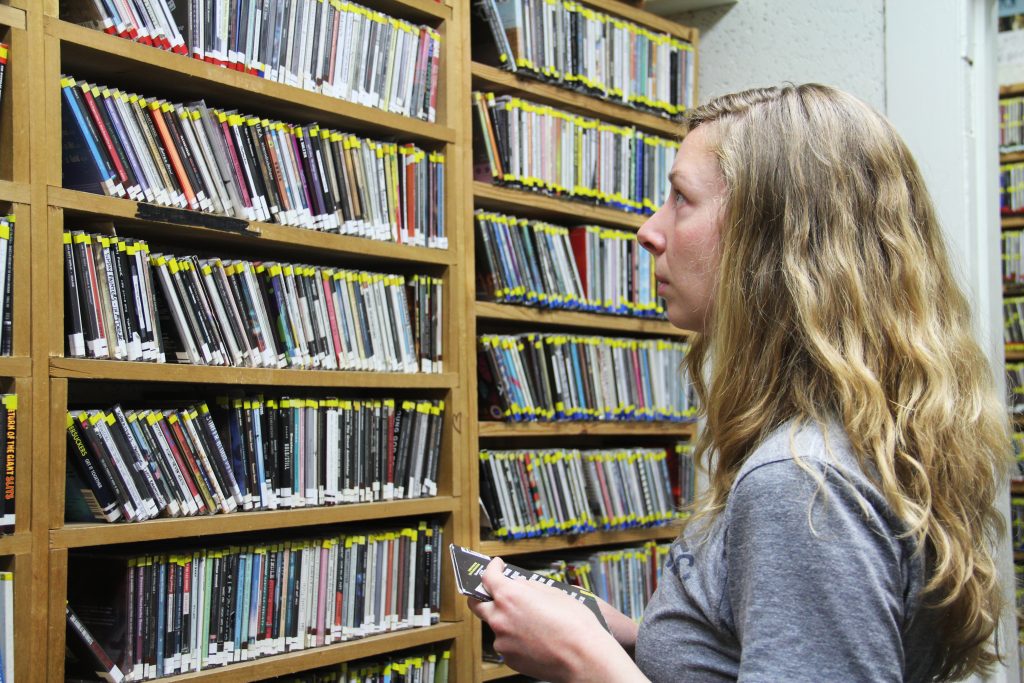
A four-year, $1.5 million grant from the Andrew W. Mellon Foundation will significantly advance Carolina’s efforts in humanities education, research and teaching at the University of North Carolina at Chapel Hill.
The initiative, “Humanities for the Public Good,” will use multiple strategies to integrate public humanities into the curriculum, tap the potential of digital technology for humanities scholarship and teaching, and reach out to diverse communities to elevate awareness of existing humanities activities at Carolina as well as foster new avenues of public engagement.
“We are honored that the Andrew W. Mellon Foundation selected Carolina as a grant recipient, advancing our pan-university ‘Humanities for the Public Good project,’” said Chancellor Carol L. Folt. “We deeply believe in our faculty leading this effort. Every day, they put into action Carolina’s commitment to humanity for the public good.”
The principal investigator of the grant is Terry Rhodes, senior associate dean for fine arts and humanities in UNC’s College of Arts & Sciences. A new initiative director, reporting to Rhodes, will be hired to implement the programmatic activities and other elements of “Humanities for the Public Good.”
The initiative will focus on three broad themes:
- Employing new educational models for the humanities that reconfigure education and promote the public humanities in the curriculum.
- Integrating contemporary, digital approaches into research and education.
- Expanding the public humanities through more engagement with diverse communities beyond the academy.
“What is exciting about this initiative is that it is a natural evolution of Carolina’s identity as a university ‘of the public and for the public,’” Rhodes said. “This grant will allow us to meaningfully advance our efforts around this central and reaffirming theme of ‘humanities for the public good’ in ways that will benefit our students and faculty enormously.”

In fall 2016, Carolina was awarded a planning grant from the National Endowment for the Humanities Next Generation Ph.D. program. The yearlong initiative, “Re-envisioning the Humanities PhD,” included a series of public discussions, an alumni networking conference and a white paper. UNC also collected data from humanities graduates on curriculum, job placement and other topics related to the graduate experience.
The Mellon grant will enable the College of Arts & Sciences to better prepare students for a panoply of career options, both within and outside of academia.
Employing digital technologies in humanities scholarship and teaching is another area in which Carolina has made major advances and seeks to do more. These rapidly evolving digital technologies enable humanists to reach new audiences through forms of media that have become the norm of public communication.
The Digital Innovation Lab, established in 2011 and later funded in part by the Mellon-supported Carolina Digital Humanities Initiative, spurs humanistic research and community engagement with large-scale data sources and develops best-practice models for work in public humanities.
Past efforts at Carolina include the creation of one of the most ambitious public humanities projects in the university’s history — Digital Loray — an onsite and online history center that documents the story of the Loray textile mill in Gastonia, N.C. UNC’s new Community Histories Workshop furthers this type of innovative work, benefiting the state and the region. The Mellon funding will allow the university to support the development of new and expanded digital humanities projects that align with the goals of “Humanities for the Public Good.”
Numerous entities at Carolina have been engaged in public engagement and outreach. To cite one example, Carolina Public Humanities, a program in the College of Arts & Sciences, has provided cultural enrichment to the general public in the form of public seminars, lectures, reading groups and other activities for nearly 40 years. Its Carolina K-12 outreach provides teacher training, lesson plans and other resources for educators. The program’s new Maynard Adams Fellowships for the Public Humanities recognize and bring together graduate students from different disciplines who are conducting public-facing humanities work.
The new Mellon funding will provide funding for humanities course development, travel grants for faculty to engage with the public in humanities-based work, and support for graduate students through paid summer internships, scholarships and stipends.
“Humanities for the Public Good” will also host symposia, in the second and fourth years of the initiative, to highlight collective public humanities work at UNC.
“In the College Arts & Sciences, our new vision statement is: ‘Reimagining the Arts & Sciences for the public good,’” Rhodes said. “We are so grateful to the Mellon Foundation for recognizing that our faculty and students are especially committed to work that wrestles with issues of importance, effects societal change and makes a positive contribution to the human experience.”




